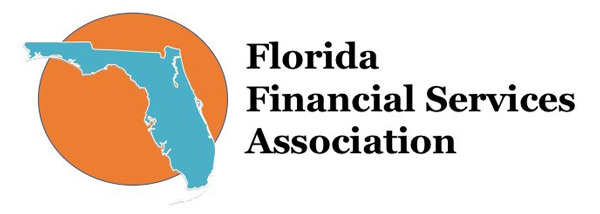Helping Florida Families Build and Improve Their Credit Scores
About the Florida Financial Services Association
Established in 1927, the Florida Financial Services Association (FFSA) is dedicated to improving the understanding of non-bank, consumer credit and how it can increase individual financial capability and drive prosperity in the state of Florida.
FFSA members operate under Chapter 16 of the Florida statutes to provide Florida families with safe and affordable loans, fully underwritten and repaid in regularly scheduled installments. Loan performance is reported to the major credit bureaus, allowing responsible borrowers to build, improve, and reestablish the credit scores essential to financial mobility.
FFSA members’ products are a potential policy solution for Florida lawmakers, allowing them to act against predatory or problematic credit, while maintaining a reliable option to meet the demand for credit in the state.
Understanding Chapter 516 Installment Lending In Florida
Chapter 516 of the Florida Statutes defines and regulates installment loans in Florida. This law outlines the terms and conditions for licensed lenders to offer installment loans to consumers.
Installment loans are loans that are repaid over a period of time in regular installments of principal and interest, unlike payday-type loans, which are repaid in one lump sum. Installments are considered a safer loans structure for non-bank borrowers. The purpose of Chapter 516 is to provide consumers with access to safe and affordable credit options while protecting them from predatory lending practices.

-
Over 500,000 Floridians are Unbanked
More than half a million households in Florida are unbanked, and well over a million households are underbanked. (Bank on Florida)
-
Florida Ranks high for Credit Insecurity
Florida ranks 18th in “credit insecurity” nationally, and 4th in the number of counties ranked “credit insecure”. (FDIC)
-
Access to Credit: Critical in Emergencies
Almost 40% of Americans do not have $400 in savings, making access to credit critical when a financial emergency strike. (FDIC)
-
Credit Deserts are Common in Florida
30 (45%) of Florida’s 67 counties are considered credit-insecure or credit-at-risk-- communities with high concentrations of residents but no or low ability for them to obtain local regulated credit. (NY Fed)
-
Floridians Need Regulated Credit Access
Without access to safe, well-regulated credit, huge numbers of Floridian individuals and families have no way to smooth their spending, meet emergencies and, critically, build the credit scores so important to financial mobility.
Florida’s Lending Laws Must be Modernized
Most States Have Modernized lending Laws to Allow Greater Credit Access than Florida.
- Florida’s interest rates for installment loans have remained remain unchanged since the 1970’s.
- Only 8 states have more restrictive lending laws than Florida.
- Modernizing FL’s lending laws will improve access to responsible credit options and increase levels of financial mobility among Floridians.
-
Permissible Annual Percentage Rates (APR) for loans above $2,500 are lower than those in other major states like CA and IL, and those in neighboring states like GA and AL, all of which drive greater financial inclusion.
-
Increasing the rates that state-licensed lenders can charge in line with modernized standards in other states will allow state-licensed and supervised lenders to lend to more people.
-
This will meet the growing demand for credit with safe and responsible loan products, at the same time, creating jobs and economic activity that will contribute to prosperity in Florida.
Installment loans made by licensed lenders, at 36% APR or below, represent the safest, most affordable form of non-bank credit in existence.
The Role of Non-Bank Lenders in Providing Credit Access to Underbanked Populations
Consumers with low credit scores may benefit from installment loans that come with high interest rates since they provide access to credit that may otherwise be unattainable. Unlike traditional banks, non-bank lenders usually offer such loans and take on higher levels of risk. Although these loans come with high interest rates, they can serve as a viable option for those who don’t qualify for conventional bank loans or have poor credit scores.
